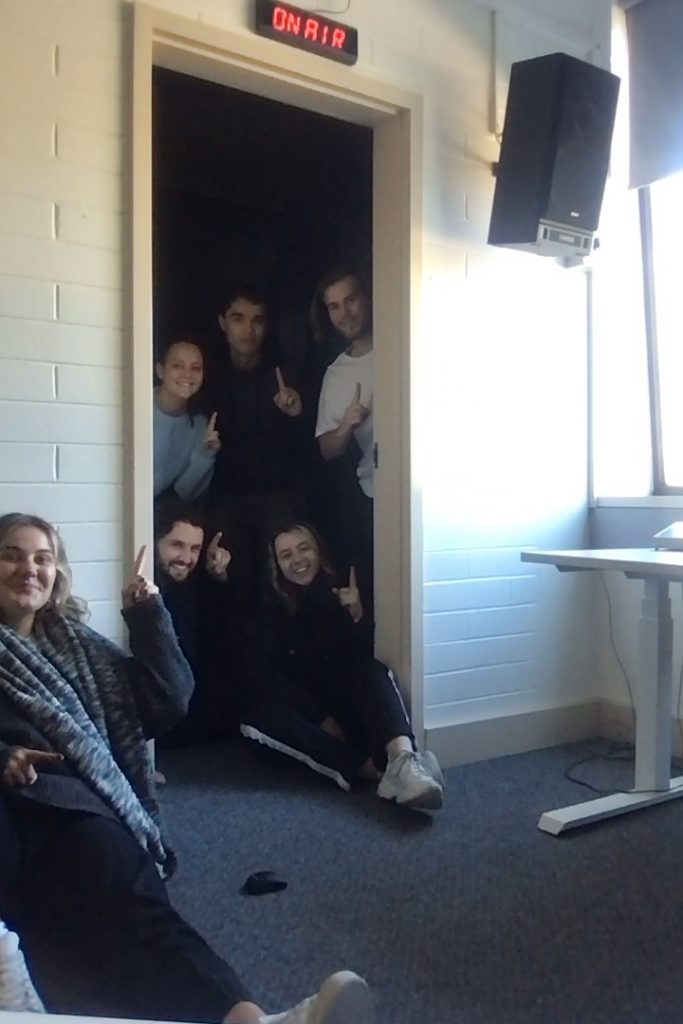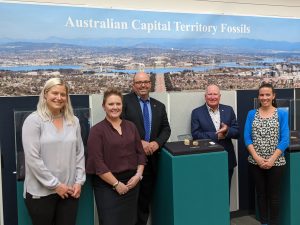Public takes back seat at Basin body
By GRACE KEYWORTH
REFORMS to the Freedom of Information Act in 2010 were meant to streamline applications and make the process simpler for citizens. In some aspects for everyday citizens this has been achieved, but for the vast majority of news organisations and journalists, it is still like trying to get blood out of a stone when it comes to sensitive issues.
Just this year, we saw the high profile FOI case involving the Seven Network and the Department of Defence over footage of Tony Abbott in Afghanistan. Reporter Mark Reilly revealed in an interview with The Australian (Overington, 2011) that it had taken more than three months for Defence to release the video under Freedom of Information laws. Waiting three months for any sort of information in the news business means that by the time it is released, it is certainly not “new” anymore, and consequently the value of the information is significantly decreased.
In my own case study, I lodged a request under the Freedom of Information Act with the Murray Darling Basin Authority (MDBA) on March 7 this year. I asked for documents relating to the feedback MDBA received from the CSIRO regarding their Basin Plan. The feedback itself had just been made publicly available on their website, after a Senate estimates hearing on the matter.
The feedback heavily criticised MDBA’s interpretation of CSIRO’s research and stated they had not applied their science correctly in working out many areas of their draft guide to the basin plan.
In a cover letter supplied with CSIRO’s report, Ian Prosser from the Water for a Healthy Country Flagship said, “There are a number of areas where our view is that what is documented in the Guide either does not represent best available science, or does not represent appropriate application of best available science in the context of the Basin Plan and the wider context of the National Water Initiative. There are also areas where the explanations in the Guide are either misleading or do not fully articulate key assumptions made by the Authority.”
Initially, I asked for other documents relating to CSIRO’s feedback, imagining that it would be a straightforward process to discover what impact their feedback had on the draft plan for the Basin. With the benefit of hindsight, I realise I should have limited my request to a specific area of the feedback from the beginning, instead of casting a wide net hoping to catch something I wasn’t expecting.
The ability to lodge an application via email brings the process up to modern day speed, I received an acknowledgement of my application just six hours after I had sent it. This process is also now free, as the lodgement fee of $30 no longer applies.
Just four days later, MDBA called me and asked to hold a teleconference regarding my request with their FOI coordinator, lawyer and two staff members that were meant to be able to help me with my request. Whilst everyone was polite and helpful, it was asserted that my scope was too wide and I would have to reduce it to get anywhere, and why would I want the information anyway. They also said that MDBA hadn’t made a response to CSIRO regarding the feedback. The lawyer said that although the application fee no longer applied, there could be fees associated with my request.
After hanging up the phone, I did wonder if it would actually be worth pursuing. So much effort and so many hoops to jump through, for information that I didn’t really need except to complete a university assignment. I decided to soldier on just to see what else they would throw in my way.
I re-framed my submission and asked for information regarding communication between CSIRO and MDBA and changes to the draft of the plan triggered by their feedback.
Meanwhile, on the 16th of March, the front page of the Canberra Times ran a story titled ‘Experts ‘misquoted’ in water plan’, which covered the information in CSIRO’s submission I was looking into. Whilst nothing can be proven, it is more than a little co-incidental that after I started poking around the rest of the media took notice. Was it a friendly tip-off from one of the organisations involved, or did they decide to revisit the feedback section of MDBA’s website on their own? I guess I’ll never know, but essentially, I was scooped two days before my first story on it was due.
Two weeks later, I received another email from MDBA asking for $360.40 relating to my FOI request as they had found seventeen documents totalling sixty pages. In the cost breakdown that included fifteen hours of search and retrieval time, six hours of decision making time plus printing and postage. I asked for the titles of the documents so I could further reduce the scope of my request, but this was declined by MDBA’s FOI coordinator, Loraine Haalebos.
“We have considered your request and we are of the view that providing you with a list of titles would not necessarily reduce any charges applicable to your application, given that the charges are largely based on search and retrieval as noted in our letter dated 30 March 2011. Accordingly, we decline to provide you with that list,” Haalebos said.
She went on to state that I was able to contend the charges, which was my next step. I wrote another email explaining that I was a Centrelink supported student, and the charges would cause me significant financial hardship, and asked for the charges to be completely waived.
Another fortnight went past without a peep from MDBA, so I wrote another email asking for an update on my application and if they could tell me if they had decided about waiving the charges or not.
“This matter is currently under consideration and you can expect a decision shortly” was all MDBA had to say on the matter.
Finally, two days after this statement, and six weeks after my initial contact I received some documents via email and conformation that the fees had been completely waived. Contained in my zip file were seventeen documents, fourteen of which were emails between MDBA and CSIRO mainly discussing meeting times and whether MDBA had CSIRO’s permission to publish their feedback. The other three documents were minutes from meetings, which were essentially useless, as so much information had been removed.
Altogether, of the sixty-six pages of documents, forty-six of them were blank due to censorship.
Included were the sections under the Act that had made the information removed exempt. MDBA cited sections of the Act that included deliberative processes and personal information as reasons why they hadn’t provided me with the full documents.
In the letter explaining each decision the general manager of the Basin Plan, Tony McLeod, said that the release of certain information would have a negative effect on future discussions regarding the plan.
“I am of the view that some of the information contained in the documents, discloses the deliberative process of the Authority,” McLeod said. “This is because they contain information comprising advice, facts, opinions, consultations, deliberations and recommendations prepared by the agency.”
He goes on to discuss the merits of the public interest of releasing the information and decides that it would be contrary to the public interest for the information to be released.
“If the Authority papers and minutes of meetings were to be disclosed in full, the ability of the Authority to have robust discussions in the future would be compromised,” McLeod said. “This would have an adverse affect on the overall ability of the Authority membership to carry on its business effectively, which in turn would directly impact on the operations of the Authority’s staff and potentially, the Australian community as a whole.”
McLeod dismissed the public’s right to know about the discussions as a matter of public importance as it would affect the independence of the Authority.
“While noting that it could be argued that the disclosure of such documents would inform public debate on a matter of public importance and promote the effective oversight of public expenditure, these arguments do not, in this instance, outweigh the public interest in allowing the Authority to operate without being constrained or impeded,” McLeod said.
Whether this argument stands up to the public’s right to have clear and transparent conduct of an authority given the task of deciding the future of Australia’s food bowl, is another matter, but I can’t see the harm in having national institutes like the CSIRO being able to double check their science and conclusions.
In total, I sent seven emails over six weeks and participated in a teleconference to discover that CSIRO, the Victorian Government and the Farmers Federation had expressed concern over how MDBA had calculated sustainable diversion limits in their draft guide to the plan and the way climate change will affect the figures in the future. Which, in the grand scheme of things, is neither newsworthy nor new. All of that information was already available on MDBA’s website. What it did prove though, is that lodging a freedom of information request is a lengthy and time-consuming process, of which the information you were looking for is not guaranteed.
This creates problems for media organisations, which might be why they rely so heavily on department leaks and whistle-blowers to get the real story because getting it the correct way in the government’s eyes is just too complicated, and takes too long.





Be the first to comment!